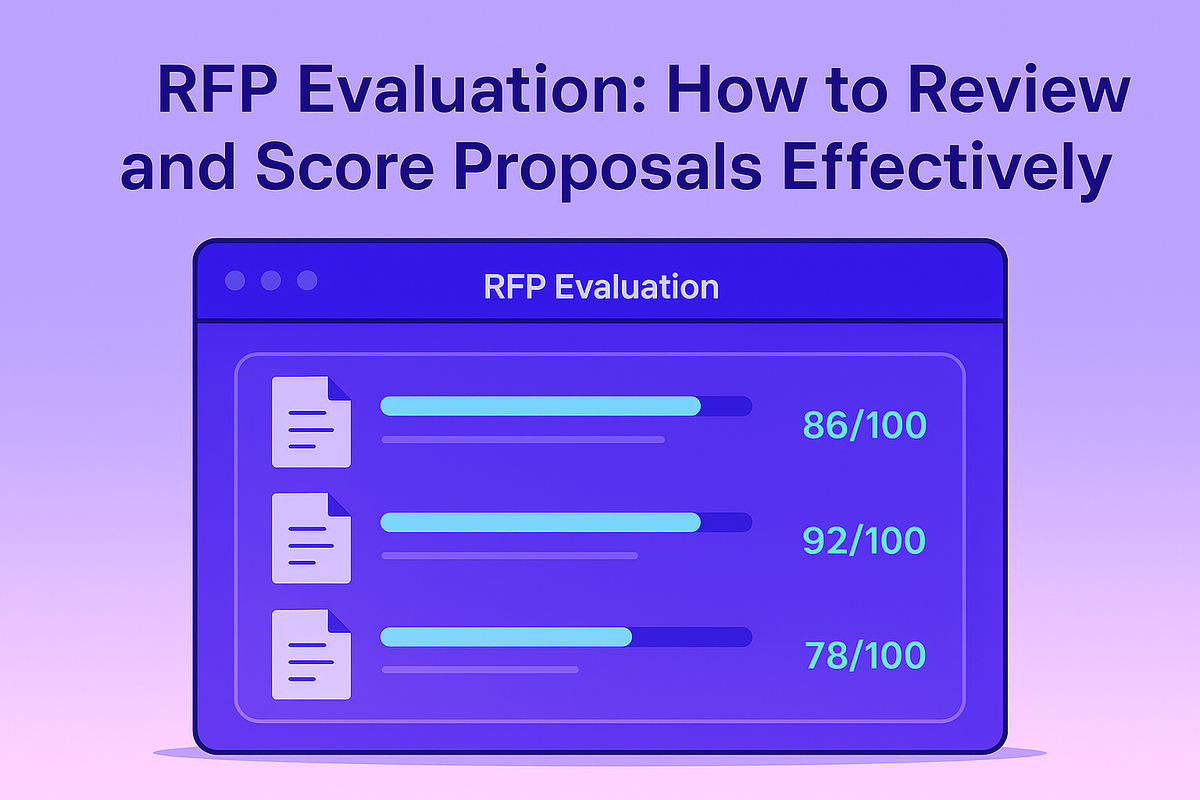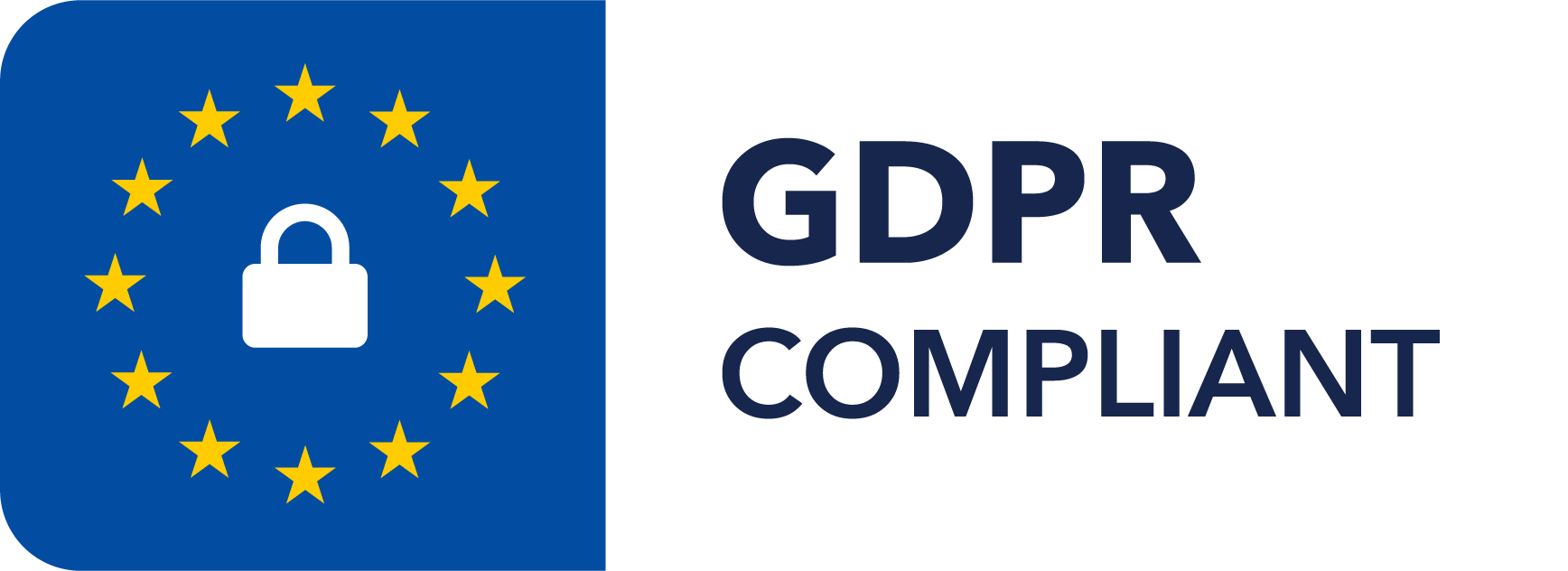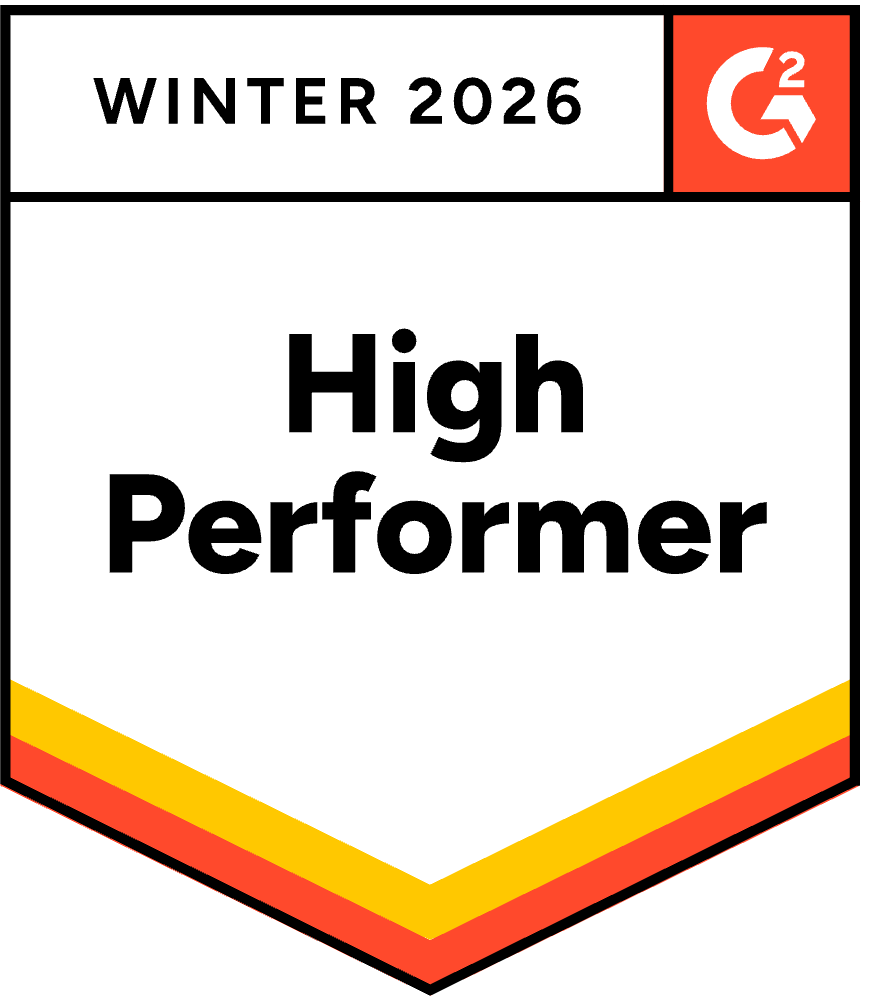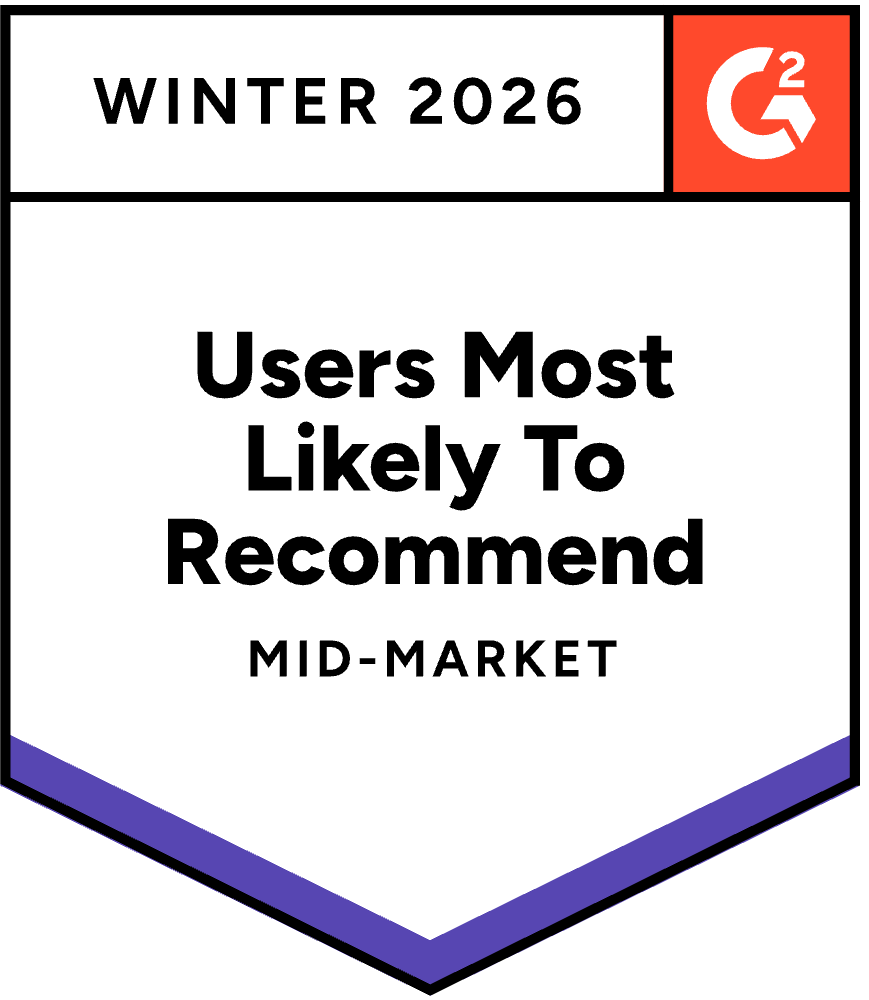RFP AI Technology: The Ultimate Guide for Sales Teams
July 21, 2025
By
Evie Secilmis
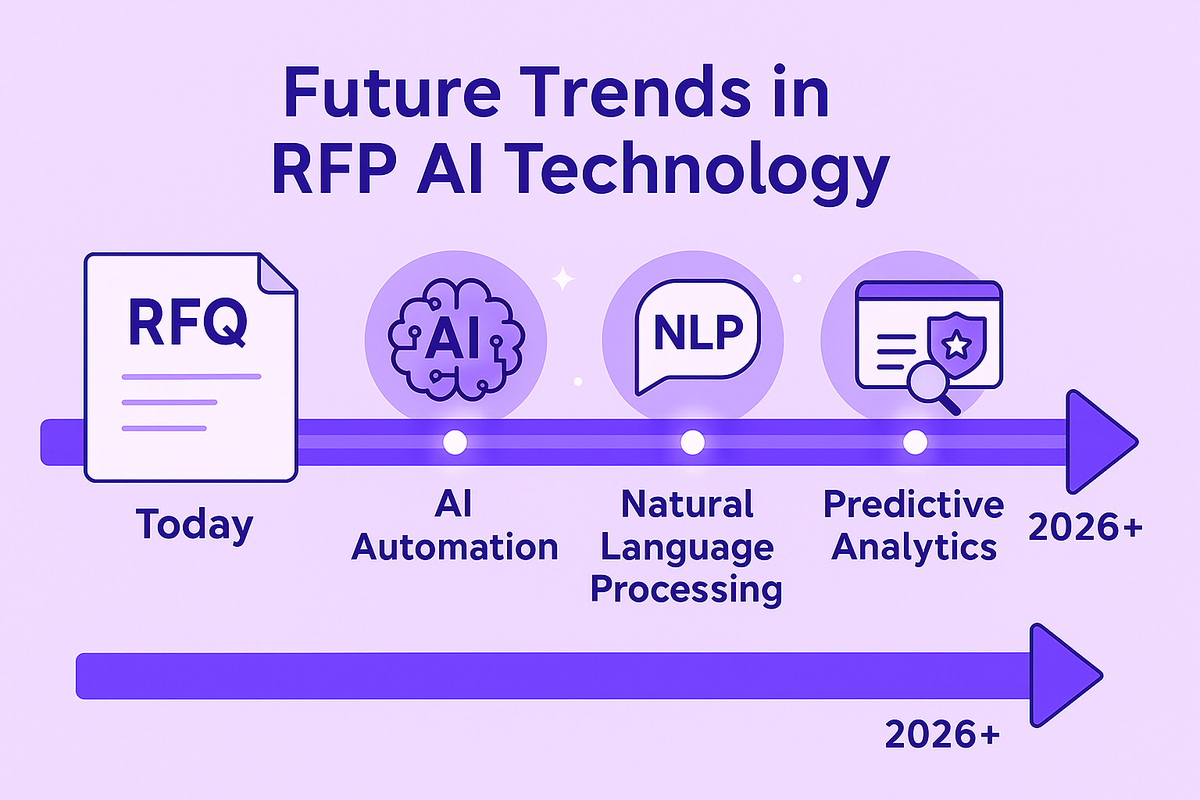
Future Trends in RFP AI Technology
Let's be honest, many procurement teams are buried in manual tasks. This reactive cycle leaves little room for what actually drives value: strategic thinking, finding operational efficiencies, and building better supplier relationships. When you're just trying to keep your head above water, you're not innovating. This is precisely where RFP AI technology steps in. It’s not just another automation tool. It delivers the deep strategic insights needed to make smarter decisions. Integrating this technology isn't just a trend—it's a fundamental shift for any business serious about sustained growth.
RFP AI technology refers to software solutions that leverage artificial intelligence to automate and optimize the creation, distribution, and evaluation of RFPs. This technology is rapidly gaining traction in procurement departments across various industries due to its ability to handle large volumes of data and make sense of it swiftly. The technology incorporates machine learning algorithms to evaluate past procurement data, predict outcomes, and recommend optimal strategies, thereby significantly reducing the time and resources traditionally required in the RFP process.
First Things First: Understanding the RFP
Before you can master the art of responding, you need a solid grasp of what you’re dealing with. The world of procurement is filled with acronyms, but the Request for Proposal, or RFP, is one of the most important documents your sales team will encounter. It’s more than just a questionnaire; it’s a formal invitation to solve a potential client’s problem and win their business. Getting this foundational knowledge right sets the stage for every successful response that follows, ensuring your team invests its energy wisely and approaches each opportunity with the right strategy from the very beginning.
What is a Request for Proposal (RFP)?
At its core, a Request for Proposal (RFP) is a formal document an organization uses when it needs to solicit bids from potential vendors for a specific project or service. Think of it as a detailed job interview for your company. The issuing organization outlines its needs, challenges, and goals, asking different suppliers to send in their ideas and prices for how they would complete the project. It’s a structured way for a company to gather various potential solutions and compare them on a level playing field, moving beyond just price to evaluate the overall value, approach, and expertise each vendor offers.
The Core Purpose of an RFP
From the buyer's perspective, the main goal of an RFP is to find the best possible value and solution for their needs. It allows them to compare many different options from various vendors in a structured format, ensuring a fair and thorough evaluation process. For your sales team, the purpose is clear: it’s your formal opportunity to showcase your expertise, differentiate yourself from the competition, and demonstrate a deep understanding of the client’s business. A well-crafted response proves you’ve not only heard their requirements but have also thought critically about how to deliver a solution that truly solves their problem and aligns with their long-term goals.
Key Components of an RFP Document
While every RFP is unique, most follow a standard structure. You can typically expect to find an introduction to the issuing company, a clear description of the project scope and its objectives, and specific questions you need to answer about your company and your proposed solution. The document will also outline the rules for submission, including deadlines and formatting requirements, and explain the criteria they will use to judge the proposals. Finally, it will usually include the proposed contract terms and conditions. Understanding these components helps you break the document down into manageable parts and ensures you don’t miss a critical requirement.
RFP vs. RFI vs. RFQ: What's the Difference?
The acronyms don't stop at RFP. You'll often see its cousins, the RFI (Request for Information) and RFQ (Request for Quote), in the procurement process. Knowing the difference is essential because each requires a distinct approach, level of effort, and strategic goal. Responding to an RFI as if it were an RFP can waste valuable time, while treating an RFP like a simple RFQ could cost you the deal. Recognizing what the buyer is asking for at each stage allows your team to allocate resources effectively and tailor your communication to meet their immediate needs, positioning you as a responsive and knowledgeable partner.
Request for Information (RFI)
A Request for Information is the earliest stage of the procurement process. A company issues an RFI when it wants to gather general information and learn more about the vendors in the market, often before asking for a full proposal. It’s less about a specific project and more about market research to understand available solutions. The goal for the buyer is to create a shortlist of qualified vendors who may be invited to respond to a future RFP. For your team, an RFI is a low-pressure opportunity to introduce your company, highlight your core capabilities, and make a strong first impression that secures your spot on that coveted shortlist.
Request for Quote (RFQ)
A Request for Quote is all about the price. This document is used when a company knows exactly what it wants and simply needs a detailed cost breakdown from vendors. The project requirements are typically rigid and clearly defined, leaving little room for creative solutions. Unlike an RFP, an RFQ focuses almost exclusively on pricing and payment terms. When you receive an RFQ, the buyer has likely already determined the "how" and is now focused on the "how much." Your response should be direct, precise, and competitive on cost, as it's often the primary decision-making factor.
Request for Proposal (RFP)
The Request for Proposal is the most comprehensive of the three. It combines the informational aspects of an RFI with the pricing details of an RFQ but goes much further by asking for a detailed, customized solution. An RFP is issued when the problem is complex and the buyer is open to different approaches for solving it. This is your chance to shine by demonstrating your strategic thinking, technical expertise, and overall value proposition. Managing the complexity of a full RFP response is where having a dedicated AI deal desk solution can make all the difference, helping you generate accurate, high-quality proposals efficiently and without the manual grind.
How is AI Reshaping Procurement?
AI in procurement is transforming traditional methods by introducing automation, predictive analytics, and data-driven decision-making. This transformation is not only making the RFP process more efficient but also enabling procurement professionals to focus on strategic tasks rather than getting bogged down by manual and repetitive processes. By automating routine tasks, AI frees up valuable time for procurement teams to engage in more value-added activities, such as supplier relationship management and strategic sourcing.
Furthermore, AI is enhancing the strategic capabilities of procurement departments by providing insights that were previously unattainable. With AI, procurement professionals can anticipate market trends, assess supplier risks, and make more informed decisions, leading to improved procurement outcomes. As AI continues to evolve, its role in transforming procurement processes is expected to expand, offering even greater opportunities for innovation and efficiency.
The Modern RFP Process: From Manual to Automated
If you've ever been part of a proposal team, you know the traditional RFP process can feel like a marathon. It’s a cycle of sifting through dense documents, hunting down information from different departments, and racing against deadlines. This manual approach is not only time-consuming but also leaves room for inconsistencies and burnout. But what if you could change the entire dynamic? The shift from a manual to an automated process is here, and it’s powered by AI. By introducing automation, teams can move away from tedious administrative work and focus on what truly matters: crafting a strategic, winning proposal that speaks directly to the client’s needs. This change allows you to spend less time searching and more time selling.
Understanding this evolution starts with a clear picture of the traditional RFP journey and how each step can be improved. From there, we can explore how AI tools are not just speeding up the process but making it smarter. Instead of simply completing tasks faster, automation provides a framework for creating higher-quality, more accurate, and more personalized responses. It’s about transforming the RFP from a necessary chore into a strategic opportunity to showcase your company’s strengths and secure more business. Let's look at the classic process before we get into how you can streamline it.
A Step-by-Step Look at the Technology RFP Process
To appreciate the impact of automation, it helps to understand the buyer's journey. When a company decides it needs a new technology solution, it kicks off a detailed, multi-stage process. It begins with the company identifying its core problems and outlining its technical requirements in a formal RFP document. This document is then sent out to potential vendors like you. From there, a question-and-answer period allows you to clarify any ambiguities before your team prepares and submits a detailed proposal by the deadline. Finally, the buyer reviews all submissions, shortlists candidates for demos, and selects a winner to move forward with for contract negotiations and implementation. Each step requires careful attention and significant time investment from both sides.
How to Automate Responses with AI
Automating your RFP responses with AI is the key to getting ahead in this demanding process. Think of AI-powered tools not as a replacement for your team's expertise, but as a powerful assistant that handles the heavy lifting. These platforms are designed to produce a strong, accurate first draft in a fraction of the time it would take manually. This efficiency is a game-changer, freeing up your proposal managers and subject matter experts to concentrate on the more strategic elements of the response. They can focus on tailoring the proposal, highlighting your unique value proposition, and ensuring every answer aligns perfectly with the client's goals. It’s about working smarter, not harder.
Step 1: Centralize Your Company Information
The foundation of any successful AI-powered response process is a well-organized content library. The first step is to gather all your essential company information and feed it into the AI tool. This includes past proposals, security questionnaires, product specifications, case studies, and marketing materials. By creating this single source of truth, you are essentially teaching the AI about your business—what you do, how you do it, and what makes you unique. This centralized knowledge base ensures that every response is built on the most current and accurate information, eliminating the frantic search for data across scattered documents and departments.
Step 2: Let the AI Analyze the RFP
Once your knowledge base is established, you can put the AI to work. Instead of manually reading through a lengthy RFP document to identify every question and requirement, the AI tool can analyze it for you. Simply upload the file, and the software will parse the text to find all the questions you need to answer. This step alone saves hours of tedious work and reduces the risk of accidentally overlooking a critical requirement. The tool effectively deconstructs the RFP, presenting you with a clear, organized list of questions that need your attention, so you can get straight to crafting your responses.
Step 3: Generate an AI-Powered First Draft
This is where the magic happens. With the RFP questions identified and your company information centralized, the AI can now generate a complete first draft of your response. With just a click, the tool draws from your content library to produce relevant, accurate answers for each question in the proposal. The HeyIris platform, for example, can generate initial drafts in minutes, not days. This draft serves as a solid starting point, with a significant portion of the repetitive work already done. Your team receives a well-structured document, allowing them to bypass the initial writing phase and jump directly into refinement.
Step 4: Review, Refine, and Collaborate
An AI-generated draft is a powerful head start, but the human touch is what closes the deal. The final step is for your team to review and refine the automated responses. This is where your experts add nuance, personalize the content, and ensure the tone perfectly matches your brand voice and the client's expectations. It’s a collaborative process where team members can check for accuracy, strengthen key selling points, and tailor complex answers to the specific needs of the buyer. This blend of AI efficiency and human expertise ensures your final proposal is not only completed quickly but is also compelling and polished, as shown in our customer success stories.
What Can RFP AI Technology Do For You?
Work Faster and More Accurately
One of the primary advantages of RFP AI technology is enhanced efficiency. AI solutions can automate repetitive tasks such as data entry, document management, and supplier communication. This automation significantly reduces the time and effort required to manage RFPs, allowing procurement teams to focus on higher-value activities. By streamlining these processes, organizations can achieve faster turnaround times, reduce costs, and improve the overall efficiency of their procurement operations.
Moreover, AI enhances accuracy by minimizing human errors. With AI-driven tools, data is processed and analyzed with precision, ensuring that all relevant information is considered during the decision-making process. This leads to better outcomes and more informed decisions. The precision of AI algorithms ensures that procurement teams are working with the most accurate and up-to-date information, ultimately leading to improved contract negotiations and supplier selections.
The Real-World Impact: A Look at the Numbers
The abstract benefits are great, but the real-world numbers are what truly stand out. Companies using this technology can create responses up to 80% faster. This isn't a minor tweak; it's a fundamental shift that frees up significant time—Microsoft, for example, saved an estimated 21,100 hours. This newfound efficiency means your team can move away from repetitive data entry and focus on strategic thinking. When AI handles the initial draft, your experts have more time to perfect the proposal and nurture the client relationships that actually close deals.
But it’s not just about working faster; it’s about working smarter. AI platforms enhance the quality of your proposals by leveraging a knowledge base of your most successful past answers, so every new response is built on a winning framework. This allows you to tackle more RFPs with consistently high-quality submissions, giving you a clear competitive edge. Solutions like our own Iris even proactively flag outdated information across your connected systems. This ensures every response is not only quick but also accurate and trustworthy, which is essential for building the client confidence needed to win.
Build Stronger Supplier Partnerships
RFP AI technology facilitates better communication and collaboration with suppliers. By automating the RFP process, businesses can engage with suppliers more effectively and efficiently. AI solutions can provide suppliers with clear instructions, timelines, and expectations, reducing misunderstandings and fostering stronger relationships. This improved communication can lead to more successful partnerships and better alignment between buyers and suppliers.
In addition to enhancing communication, AI can also provide valuable insights into supplier performance and market trends. By analyzing historical data, AI tools can help procurement teams identify potential issues before they become critical, enabling proactive management of supplier relationships. This proactive approach not only strengthens supplier relationships but also leads to more reliable supply chains and improved overall procurement performance.
Make Smarter, Data-Backed Decisions
AI-powered RFP software can analyze vast amounts of data to uncover insights that might otherwise go unnoticed. This data-driven approach enables procurement teams to make informed decisions based on trends, patterns, and historical data. As a result, organizations can identify the best suppliers, negotiate better terms, and achieve cost savings. The ability to leverage data in decision-making processes empowers procurement professionals to make strategic choices that align with organizational objectives.
Furthermore, data-driven decision-making allows organizations to be more agile in their procurement strategies. By understanding market dynamics and supplier capabilities, procurement teams can quickly adapt to changing conditions and seize new opportunities. This agility is crucial in today's fast-paced business environment, where the ability to respond swiftly to market changes can make the difference between success and failure.
Centralize Your Knowledge with Smart Content Management
How much time does your team spend digging through old folders, Slack channels, and email threads for that one perfect answer from a past proposal? It’s a common frustration that drains productivity. RFP AI technology solves this by creating a single source of truth for your company’s knowledge. It acts as a central library, gathering information from past RFPs, security questionnaires, and even connecting to the systems you already use, like Google Drive and SharePoint. This means every piece of valuable content is in one accessible place, ready to be used. Instead of reinventing the wheel for every proposal, your team can pull from a curated, up-to-date knowledge base, ensuring consistency and accuracy every time.
Improve Response Quality with AI Writing Assistance
Staring at a blank page is one of the biggest hurdles in the RFP process. AI writing assistance removes that initial friction by generating a complete first draft in minutes. By analyzing the RFP's questions and drawing from your centralized knowledge base, the software suggests the most relevant and successful past answers. This isn't just about speed; it's about quality. The AI helps maintain a consistent tone and voice across all your documents, and it frees up your team from tedious copy-and-paste work. They can then focus their expertise on refining, customizing, and strategizing, which ultimately leads to higher-quality proposals and better win rates.
Collaborate Seamlessly as a Team
RFPs are a team effort, but managing contributions from sales, legal, and technical experts can feel like herding cats. Email chains get messy, and version control becomes a nightmare. An AI-powered platform brings all collaboration into one organized workspace. You can assign specific questions to subject matter experts, track progress in real-time, and leave comments and feedback directly within the document. This streamlined process ensures everyone is working on the most current version and that all stakeholders have visibility into the proposal's status. It transforms a chaotic process into a smooth, transparent, and efficient team project.
Integrate with Your Existing Workflow
Adopting a new tool shouldn't mean disrupting your entire workflow. The best RFP AI solutions are designed to fit right into your existing tech stack. They offer integrations with the tools your team uses every day, from CRMs like Salesforce to communication platforms like Slack and Microsoft Teams. This means you can pull customer data, get notifications, and share files without constantly switching between applications. A well-integrated RFP platform becomes a natural extension of your sales process, making it easier for your team to adopt the technology and see its benefits quickly.
Trust in AI Accuracy and Transparency
It’s natural to be skeptical about letting AI handle critical business documents. How can you be sure the information is correct? Leading RFP AI tools build trust through transparency. When the AI suggests an answer, it also shows you exactly where that information came from, linking back to the original source document. This traceability allows your team to quickly verify facts and feel confident in the content. Some platforms, like Iris, even go a step further by proactively identifying information that might be outdated, ensuring your responses are always built on the most current and accurate data available.
Expand Your Reach with Global Capabilities
Business opportunities aren't limited by borders, and your proposal process shouldn't be either. Responding to an RFP in another language can be a significant barrier for many companies. Modern RFP AI technology helps break down these barriers with built-in translation features. The software can help you understand requirements and draft responses in dozens of languages, effectively opening up new international markets. This allows your team to confidently pursue global opportunities without the high cost and long turnaround times associated with manual translation services, giving you a true competitive edge on the world stage.
Best Practices for Creating a Winning Response
Now that you understand what RFP AI can do, let's talk about how to apply it to create proposals that actually win deals. Technology is a powerful assistant, but a winning strategy still requires a human touch and a deep understanding of what the client is looking for. A great response isn’t just a document; it’s the first step in building a relationship. It shows the potential client that you’ve listened, you understand their challenges, and you have a clear, well-thought-out plan to help them succeed. Combining smart strategy with powerful tools is the key to consistently coming out on top.
What Makes a Good RFP Response?
A winning RFP response does more than just check the boxes; it builds confidence. It starts with a concise summary of your proposed solution, immediately showing that you grasp the client's core problem. From there, it should clearly demonstrate your company's experience and prove you’ve done your homework on their specific needs. A detailed explanation of your solution, a step-by-step implementation plan, and introductions to the team they’ll be working with add a personal, reassuring touch. Including examples of similar successful projects provides powerful social proof, while transparent details on support, security, and scalability show you’re thinking about a long-term partnership. Finally, a clear, comprehensive cost breakdown prevents any surprises and builds trust from the very beginning.
Common Mistakes to Avoid
Knowing what not to do is just as important as knowing what to do. In the high-stakes world of RFPs, simple oversights can quickly disqualify an otherwise perfect proposal. Both the team issuing the RFP and the team responding to it can fall into common traps that hinder the process. For issuers, a poorly defined request can lead to confusing or inadequate responses. For responders, a small mistake can make your proposal seem unprofessional or suggest a lack of attention to detail. Steering clear of these pitfalls is crucial for a smooth and successful procurement process for everyone involved.
For Organizations Creating RFPs
If you're the one writing the RFP, the quality of your request directly influences the quality of the proposals you'll receive. Avoid being overly restrictive; while you need to state your requirements, leave some room for vendors to suggest innovative solutions you may not have considered. Be crystal clear about how any new technology must work with your existing systems—integration details are non-negotiable. It's also vital to think about the future. Does the solution need to scale as your company grows? Finally, look beyond a simple checklist of features and ask about the whole package, including implementation, training, and ongoing support.
For Teams Responding to RFPs
When you're on the responding side, a few common errors can sink your proposal fast. First, avoid overwhelming the reader with technical jargon. Your proposal will likely be read by multiple stakeholders, including those who aren't tech experts, so keep your language clear and accessible. Second, make sure you answer every single question in the RFP, even if you believe a different approach is better. Ignoring specific requests can make it seem like you didn't read the document carefully. Lastly, be completely transparent with your pricing. A clear breakdown of all costs, including setup, training, and maintenance, builds trust and shows you have nothing to hide.
How to Choose the Right AI RFP Tool
Crafting a perfect response and avoiding those common mistakes becomes much easier with the right technology on your side. When evaluating AI RFP tools, look for a solution that acts as a true partner in your process. Key features to look for include powerful AI that can generate accurate first drafts, a centralized content library to act as your single source of truth, and seamless collaboration tools for your team. The goal is to find a platform that streamlines your workflow, not complicates it. An intuitive, easy-to-use design is essential, as the right tool should feel like a natural extension of your team, helping you produce high-quality proposals faster.
What's Next for RFP AI Technology?
As AI continues to evolve, several trends are shaping the future of RFP AI technology. These trends are set to redefine how procurement professionals approach RFPs and optimize their processes. The integration of AI into procurement is not just about automating existing processes; it's about reimagining procurement strategies and creating new opportunities for innovation and growth.
Predicting Needs with Advanced Analytics
Predictive analytics is becoming increasingly important in the procurement space. AI-driven RFP software can forecast future trends, supplier performance, and potential risks. By leveraging these insights, procurement teams can proactively address challenges and make strategic decisions that align with their long-term goals. Predictive analytics enables organizations to anticipate market changes and respond with agility, ensuring that they remain competitive in a rapidly changing landscape.
In addition to forecasting, predictive analytics can also enhance risk management strategies. By identifying potential risks before they materialize, procurement teams can develop contingency plans and mitigate the impact of unforeseen events. This proactive approach to risk management can lead to more resilient supply chains and improved procurement performance.
The Role of Blockchain in Future RFPs
Blockchain technology is emerging as a game-changer in procurement. By integrating blockchain with RFP AI technology, organizations can enhance transparency, traceability, and security in their procurement processes. Blockchain can provide an immutable record of transactions, ensuring that all parties have access to the same information and reducing the risk of fraud. The integration of blockchain and AI can lead to more secure and efficient procurement processes, building trust among stakeholders and enhancing overall procurement performance.
Furthermore, the combination of AI and blockchain can streamline complex procurement processes by automating contract execution and verification. Smart contracts powered by blockchain can automatically enforce the terms of agreements, reducing the need for manual intervention and minimizing the risk of disputes. This level of automation and transparency can lead to more efficient and reliable procurement operations, ultimately enhancing organizational performance and competitiveness.
Potential Challenges to Keep in Mind
While the benefits of RFP AI technology are significant, there are challenges and considerations that organizations must address when implementing these solutions. Understanding these challenges is crucial for successful implementation and long-term success. Organizations must be prepared to navigate these challenges to fully realize the potential of AI in procurement.
Keeping Your Data Private and Secure
As AI-driven RFP software handles sensitive procurement data, ensuring data privacy and security is paramount. Organizations must implement robust security measures to protect confidential information from unauthorized access and breaches. This includes deploying advanced encryption technologies, implementing strict access controls, and conducting regular security audits to identify and address vulnerabilities. Ensuring data privacy and security is not only a legal obligation but also a critical component of maintaining trust with stakeholders.
In addition to protecting data, organizations must also consider the ethical implications of data usage. This includes ensuring that AI systems are designed to protect user privacy and that data is used responsibly and ethically. By adopting ethical data practices, organizations can build trust with stakeholders and ensure the responsible use of AI technologies.
Commitment to Security Standards (SOC 2 & ISO 27001)
When you use an AI platform to handle your proposals, you're trusting it with highly sensitive business information. That's why security certifications aren't just nice-to-haves; they're essential. Think of SOC 2 and ISO 27001 as verifiable proof that a company is serious about protecting your data. SOC 2 focuses specifically on how service providers handle customer data, assessing their controls for security, availability, and confidentiality. ISO 27001 is a broader framework that shows a company has a comprehensive and continuously improving information security management system in place. Choosing a tool that meets these standards means you can be confident that your data is protected by robust, audited processes, which builds trust not only in the tool but also with your own clients.
Compliance with Data Privacy Laws (GDPR & CCPA)
Beyond internal security protocols, adherence to data privacy laws like GDPR and CCPA is non-negotiable. These regulations govern how personal data is collected, processed, and stored, giving individuals significant rights over their information. For any RFP AI tool, compliance is a critical responsibility, as it will inevitably handle data that falls under these legal frameworks. Working with a compliant platform protects your organization from steep fines and legal headaches. More importantly, it demonstrates a commitment to ethical data practices. It ensures that both your company's and your clients' information is handled responsibly, preserving the trust you've worked so hard to build and maintaining your reputation as a secure and reliable partner.
Preparing Your Team for the Change
Introducing AI technology into procurement processes requires a cultural shift within organizations. Change management strategies are essential to help employees adapt to new technologies and workflows. Training and education programs can facilitate a smooth transition and ensure that procurement professionals can fully leverage the capabilities of RFP AI technology. By investing in change management, organizations can minimize resistance to new technologies and ensure successful adoption.
Furthermore, change management involves more than just training; it requires ongoing support and engagement from leadership to foster a culture of innovation and continuous improvement. By creating an environment that encourages experimentation and learning, organizations can ensure that procurement professionals remain engaged and motivated to embrace new technologies and processes.
Using AI Ethically and Responsibly
As AI becomes more prevalent, ethical considerations come into play. Organizations must ensure that AI-driven decisions are fair, transparent, and free from bias. Implementing ethical guidelines and frameworks can help maintain the integrity of AI systems and build trust among stakeholders. This includes ensuring that AI algorithms are designed to minimize bias and that decisions made by AI systems are explainable and transparent.
In addition to addressing bias, organizations must also consider the broader societal impact of AI technologies. This includes evaluating the potential impact of AI on employment and ensuring that the benefits of AI are distributed equitably. By adopting ethical AI practices, organizations can ensure that AI technologies are used responsibly and contribute positively to society.
Your Next Steps with RFP AI
RFP AI technology is transforming procurement by automating processes, enhancing efficiency, and enabling data-driven decision-making. As AI continues to advance, procurement professionals must stay informed about emerging trends and challenges to harness the full potential of these solutions. By embracing RFP AI technology, organizations can streamline their procurement processes, improve supplier relationships, and achieve better outcomes.
The future of procurement lies in the integration of AI, and those who adapt to these changes will be well-positioned for success in an increasingly competitive landscape. Organizations that leverage the power of AI will not only achieve operational efficiencies but also gain strategic insights that drive innovation and growth. As AI continues to evolve, the potential for transformation in procurement is limitless, offering new opportunities for those willing to embrace change and innovation.
Discover how Iris’ AI RFP platform transforms the way sales teams handle complex requests.
Frequently Asked Questions
Will using AI make our proposals sound robotic and impersonal? That’s a common concern, but it’s actually the opposite. Think of the AI as your brilliant research assistant, not the final writer. It handles the tedious work of finding the right information and assembling a solid first draft. This frees you and your team to focus on what humans do best: adding strategic insights, personalizing the message for the client, and ensuring the tone reflects your brand's unique voice. The goal is to let AI manage the repetitive tasks so you have more time to infuse the proposal with genuine expertise and a human touch.
My team is already swamped. How much effort does it take to set up an AI RFP tool? Getting started is more straightforward than you might think. The initial step involves creating your central content library by feeding the platform your existing documents like past proposals, case studies, and security questionnaires. While this requires some upfront effort, it’s an investment that pays off almost immediately. Once the AI learns about your business, it can generate drafts in minutes. This process itself helps you get organized, and a good platform will have a support team to guide you through every step.
We handle a lot of sensitive client data. How can I trust an AI platform with it? This is a critical question, and you should never compromise on security. The most reliable AI RFP platforms prove their commitment to protecting your data through third-party certifications. Look for compliance with standards like SOC 2 and ISO 27001. These aren't just acronyms; they are rigorous audits that verify a company has strong controls in place for handling sensitive information securely. Choosing a tool with these credentials ensures your data, and your clients' data, is in safe hands.
Our company's information is scattered everywhere. Does it need to be perfectly organized before we can start? Not at all. In fact, one of the biggest benefits of an AI RFP platform is that it helps you solve that exact problem. The process of setting up the tool involves connecting it to the places where your information lives, whether that's Google Drive, SharePoint, or other systems. The platform then helps you create a single source of truth. Instead of needing to be perfectly organized beforehand, the tool becomes the catalyst for building the centralized, accessible knowledge base you've always wanted.
Is an AI tool only useful for massive, complex RFPs? While AI is a lifesaver for large, hundred-page RFPs, its value extends to all kinds of business documents. You can use it to quickly complete security questionnaires, vendor assessments, RFIs, and even SOWs. Any task that involves pulling from a standard set of company information can be streamlined. This allows your team to respond to more opportunities of all sizes with speed and consistency, improving your overall deal volume and win rates across the board.
Key Takeaways
- Automate Repetitive Work to Focus on Strategy: RFP AI handles the time-consuming task of finding answers and drafting responses, giving your team the bandwidth to tailor proposals, perfect your messaging, and build stronger client relationships.
- Centralize Your Knowledge for Better Responses: The effectiveness of an AI tool depends on the quality of your input. Creating a single, organized library of your best content ensures every proposal is built on accurate, consistent, and up-to-date information.
- Use AI as a Co-pilot, Not an Autopilot: Let the AI generate a strong first draft in minutes, but always have your experts review, refine, and personalize the final response. This combination of AI efficiency and human expertise is what ultimately wins deals.
Related Articles
Share this post
Link copied!




